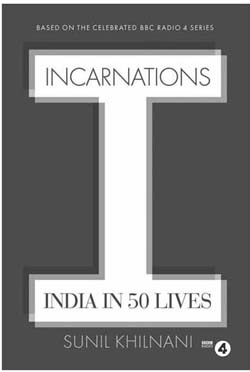Incarnations, the dust jacket reveals, is based on the celebrated BBC Radio 4 series, broadcast in 2015. Perhaps the terms of commission had stipulated fifty lives—as a substantial number, and a round one. Fifty lives lived end-to-end would just about span the two-and-a-half millennia between Sunil Khilnani’s bookends: the Buddha and Dhirubhai Ambani. However, a footslog through history is not his aim. While the fifty subjects appear in chronological order, seven individuals feature from the first one thousand years and twenty-one from the last century alone. Exactly six women make the cut—under-represented to the same degree as in the current Lok Sabha. This Khilnani blushes at but blames it on the absence of non-royal women from records till the twentieth century. (The welldocumented twentieth century yields all of three women.) Still more invidious comparisons can be achieved by region, language, community, etc., should anyone feel like it. Khilnani has called his effort ‘a happily partial exercise’ and ‘one designed to provoke’.
For all their difference in girth, there is a profound resemblance between Incarnations and Khilnani’s previous book, The Idea of India. It lies in the centrality but biographical absence of Nehru. ‘The historical Nehru,’ wrote Khilnani in his preface to The Idea, ‘is alluded to but not presented in any detail. That is the task of a biography I am presently researching.’ Even so, Nehru was the ‘central icon’ of the work and his idea of the new state, the eventful journeys of both of which—idea and state—Khilnani traced across the decades since Independence. This time round, he downplays the omission of Nehru, referring to him as merely ‘one of the figures I have excluded,’ given ‘the impossibility of being representative, or all-inclusive [which] has also given me freedom.’ But make no mistake, Nehru is the presiding figure of Incarnations, and could hardly have been more present with an essay under his name.

